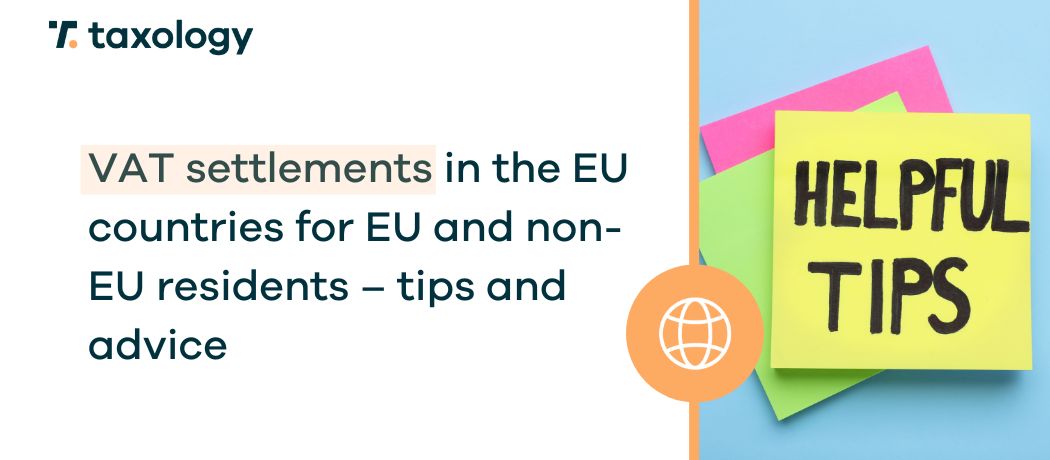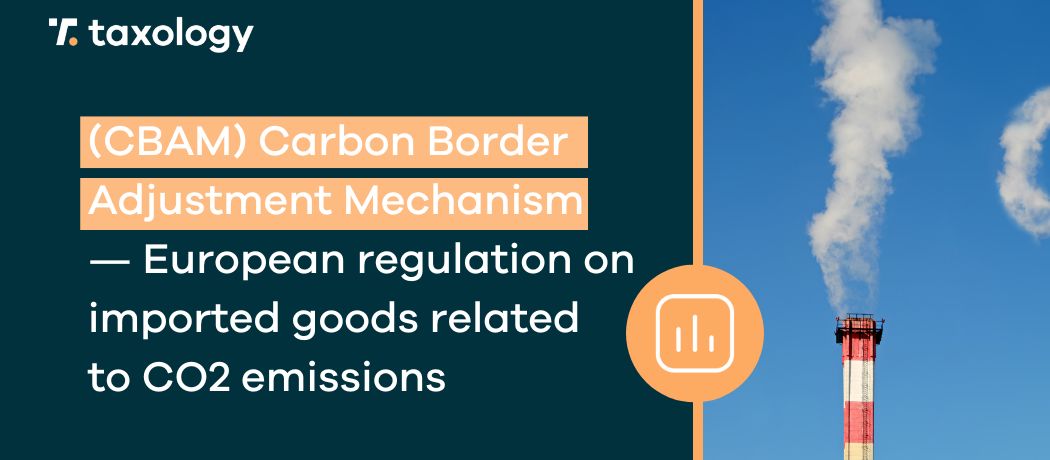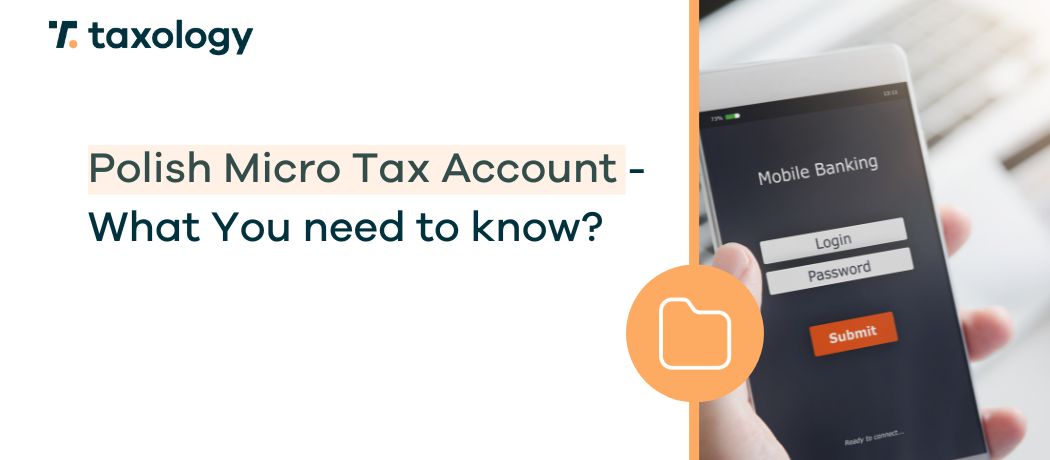VAT settlements in European Union countries are a key aspect of financial management for any business operating on the international market. Understanding the rules that govern these settlements is essential […]
Read in: 5 minVoluntary disclosure – the act of voluntarily admitting to a fiscal misdemeanor or crime. What should you know?
- Last update:
- Published: 26.02.2024
- Read in: 5 min
In the era of changing regulations affecting business operations, entrepreneurs must regularly face new challenges, including in the accounting area. However, it sometimes happens that they are unable to fulfill their obligations on time, e.g., by delaying the submission of VAT declarations or tax payments. As a result, there is a risk of negative consequences. Importantly, there is a tool that allows minimizing the mentioned risk, named voluntary disclosure.
The purpose of voluntary disclosure is to enable entrepreneurs to voluntarily admit to committing a prohibited act, which results in avoiding penalties that may arise if such misdemeanors or crimes are detected by the relevant authorities. However, it should be kept in mind that voluntary disclosure is not always applicable, only in selected situations, and there are specific conditions for its effectiveness or forms in which it must be submitted. If you want to learn more about this topic, we invite you to read this article!
What is voluntary disclosure?
Voluntary disclosure refers to the act of voluntarily admitting to committing a fiscal misdemeanor or crime. This concerns situations when entrepreneurs fail to meet their tax or customs obligations on time, which may result in the imposition of penalties provided for in the Fiscal Penal Code (FPC).
It should be emphasized that voluntary disclosure does not protect against criminal interest for late payment. It only allows for avoiding penalties arising from the FPC.
Additionally, it is worth noting that merely submitting a voluntary disclosure is not enough, as it is also necessary to fulfill the overdue obligation.
When can voluntary disclosure be applied?
Voluntary disclosure can help avoid criminal sanctions in cases such as:
- failing to pay VAT tax;
- paying the incorrect income tax;
- not submitting a tax declaration on time;
- improperly maintaining accounting books;
- incorrect application of VAT exemption or VAT rates.
As mentioned above, the regulations specify that effective regret requires concurrent fulfillment of obligations. However, there are 2 other conditions for effectiveness.
Besides paying the dues, the voluntary disclosure procedure must be initiated before the chief of the customs and tax office or the tax office independently documents the crime or misdemeanor, and before law enforcement agencies undertake actions leading to the detection of the prohibited act. In the latter case, an exception is when law enforcement has taken actions, but these did not lead to the initiation of proceedings against the perpetrator of the act.
When will voluntary disclosure not be effective?
It should be noted that there are also situations when voluntary disclosure cannot be submitted, including:
- tax authorities have documented the commission of a crime or misdemeanor, and the perpetrator has been summoned by them;
- the perpetrator of the prohibited act is in the midst of a control procedure;
- the commission of the prohibited act was the result of deliberate action, and the perpetrator of the act organized a group or association for this purpose;
- the perpetrator of the prohibited act encouraged third parties to commit fiscal crimes or misdemeanors.

Need help with VAT or e-commerce accounting?
Let us know what the problem is and our specialists will do the rest! Regardless of whether you need help with e-commerce accounting or VAT and VAT OSS issues – registrations, settlements and declarations!
Schedule a consultationWho can submit a voluntary disclosure?
Anyone who has committed a fiscal misdemeanor or crime can submit a voluntary disclosure. However, it should be emphasized that the content of the voluntary disclosure should describe significant circumstances related to the non-fulfillment of obligations, and it should be submitted by the party responsible for the entire situation, e.g., an accounting office or a company employee responsible for accounting.
Place and deadline for submitting a declaration of committing a prohibited act
Voluntary disclosure can be submitted to the appropriate tax office, customs and tax office, or tax office for the largest entities. However, it must be remembered that effective regret also requires paying the dues and fulfilling the neglected obligations no later than the day of submitting the voluntary disclosure or within a deadline set by the relevant office.
Form of voluntary disclosure
There are several forms in which voluntary disclosure can be submitted:
- The first is to write a voluntary disclosure;
- Another possibility is to present the voluntary disclosure orally for the record;
- The last option is to submit what is known as electronic voluntary disclosure.
Electronic voluntary disclosure
Electronic voluntary disclosure allows reporting the prohibited act to the e-PUAP inbox of the relevant office or through the e-Tax Office platform. However, it should be kept in mind that in these cases, documents must be signed with a qualified signature, trusted profile, or personal signature.
How to write a voluntary disclosure?
Although the form of voluntary disclosure depends on the choice of the reporting party, the content of the voluntary disclosure does not have to be provided in a form or written according to a template. It is important, however, that it contains specific information, including:
- the data of the person submitting the voluntary disclosure;
- the data of the addressee – the chief of the customs and tax office or tax office;
- a description of the committed misdemeanor or crime and significant circumstances that accompanied it;
- indication of persons related to the prohibited act;
- information on whether the perpetrator of the act has done everything in their power to rectify their act and fulfill the obligations or how they plan to do so.
It is worth emphasizing that after admitting to committing the prohibited act, the voluntary disclosure procedure does not envisage sending a response or contacting the applicant. The effect of successful regret will be the cessation of imposing a penalty and/or indicating a deadline to fulfill obligations. However, if it turns out to be ineffective, proceedings will be initiated.
Act of voluntary disclosure - summary
Voluntary disclosure is an essential tool in fiscal law. Meanwhile, the goal of voluntary disclosure is to enable the perpetrator of the prohibited act (misdemeanor or fiscal crime) to admit guilt and avoid the consequences threatening in the event of not reporting such an incident.
It is worth emphasizing, however, that the voluntary disclosure procedure, in addition to reporting and admitting to committing the prohibited act, also foresees fulfilling overdue obligations, such as paying dues or submitting overdue declarations. Moreover, voluntary disclosure will not be effective when law enforcement undertakes actions leading to the detection of the prohibited act, such as a tax inspection, and before the tax office or customs and tax office independently documents the commission of the prohibited act.
Voluntary disclosure must be submitted in writing, orally, or electronically to the chief of the customs and tax office or tax office appropriate for the entrepreneur and must include information such as the data of the submitter, the data of the addressee, a description of the committed act, information about persons related to the non-fulfillment of obligations, and measures taken to compensate and repair the neglect.
Additionally, voluntary disclosure applies, among other things, in the case of failing to pay VAT on time, with which our specialists can help you and your company. If you need support in the area of VAT and VAT OSS – regarding registration, settlements, or declarations in EU and UK countries – or in e-commerce accounting, schedule a consultation and let us know what the problem is. Our specialists will take care of the rest!




